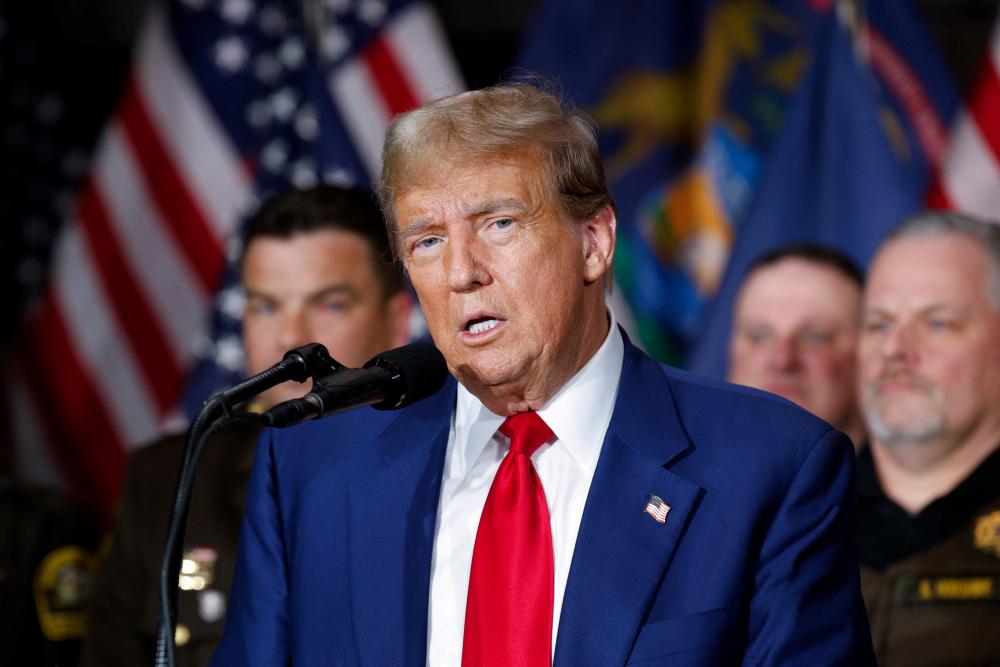The decision came Monday, a week before jury selection was set to start.
Trump’s lawyers had argued at an emergency hearing that the trial should be postponed while they seek a change of venue to move it out of heavily Democratic Manhattan.
Trump was ready on Monday to sue the judge in his New York hush-money case a week before the start of the much-anticipated trial, the New York Times reported, detailing yet another attempt by the former president to delay legal proceedings against him.
Related: Donald Trump says each US state should determine different abortion laws
Citing court records indicating the filing of sealed documents and two unnamed sources with knowledge of the matter, the paper said the aim was to delay trial and challenge a gag order imposed by the judge.
“Mr Trump’s unorthodox move – essentially an appeal in the form of a lawsuit – is unlikely to succeed, particularly so close to trial,” the paper said.
Facing 34 criminal charges related to hush-money payments to Stormy Daniels, an adult film star who claimed an affair with him, Trump has pleaded not guilty.
He has repeatedly attacked the judge in the case, Juan Merchan, and members of his family, alleging political bias.
The trial is set for Manhattan next Monday and will be the first criminal trial involving a former US president.
Trump, the Times said, was also expected to ask an appeals court to move the trial out of Manhattan, his home borough before his post-presidency move to Florida but a heavily Democratic area.
That gambit was also deemed unlikely to succeed.
Harry Litman, a US attorney turned law professor and commentator, said: “Trump’s latest desperate move of personally suing Merchan in the appellate division is reminiscent of his initial gambit in Palm Beach [Florida], where judge [Aileen] Cannon permitted him to take the whole action off track [in his classified information case].
“But won’t happen here. Imagine if a criminal defendant could do this … ”
The Times said the suit would be an Article 78 action, under New York laws that can be used to challenge state agencies and judges.
Trump faces 54 other criminal charges: 40 in Florida, over his retention of classified information after leaving office, and 14 over his attempt to overturn the 2020 election – 10 in Georgia and four in Washington DC.
Trump also faces multimillion-dollar penalties in two civil cases, both in New York, one concerning tax fraud and the other for defamation arising from a rape allegation a judge called “substantially true”.
Denying all wrongdoing and claiming political persecution, Trump is attempting to delay all cases against him until after the presidential election in November.
If he were to defeat Joe Biden and return to the White House, he could ensure the dismissal of federal charges in the classified information case and in four charges of election subversion. State charges would be tougher to deal with.
In the New York hush-money case, Merchan last week denied an attempt to delay trial until the US supreme court rules on Trump’s claim of immunity regarding any act committed in office, lodged in his federal election subversion case.
Merchan has also rejected one call to recuse himself and is thought overwhelmingly likely to reject another.
